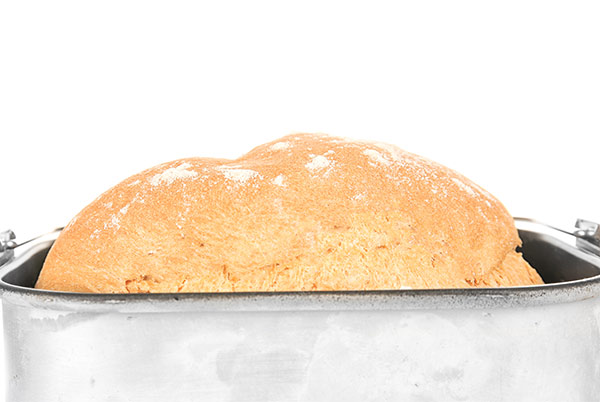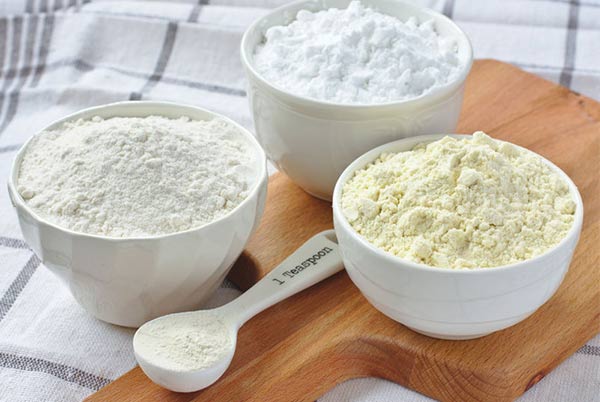Answers from a Gluten Doctor – Part 7: Gluten-free Diets & Nutritional Deficiency
Updated Oct 17, 2025, Published Jun 11, 2010
This post contains affiliate links. Please see our disclosure policy.
 Recently there seems to be a lot of misinformation going around stating that gluten-free diets may be or are causing other nutritional deficiencies. So I decided to pose the question to our favorite gluten-free doctor, Dr. Vikki Petersen. For those of you who do not already know Dr. Vikki, she is a leader in the field of gluten intolerance, author of the book The Gluten Effect and co-founder of Root Cause Medical Clinic in California and Florida.
Q – Is there any particular nutritional deficiency we gluten intolerant can get by eliminating gluten and if so what should we do about it?
A – Nutritional deficiencies are much more common from untreated gluten sensitivity than from removing gluten from the diet.
The deficiencies associated with being gluten sensitive are: low calcium, magnesium, iron and zinc. Additionally vitamins A, D and K are often deficient.
The biggest mistake I see patients make when beginning a gluten-free diet is to overindulge in the processed, simple carbohydrate-type foods. It’s wonderful that gluten-free pasta, cereal, waffles and brownies exist gluten-free. But they should not be eaten on a daily basis as they are stripped of healthy nutrients.
Many of the foods that are naturally gluten-free are the healthiest and should be consumed daily. Every day you should eat 5 servings of fruits and vegetables – heavier on the dark green vegetables please. Beans, legumes, whole grains such as quinoa, buckwheat, millet and brown rice are also naturally gluten-free and very healthy. Don’t forget about the good fat in the form of olive oil, coconut oil, raw nuts and avocados. If you eat animal protein, ensure that it’s hormone-free and as “clean” as possible.
Exercise regularly and drink about 8 glasses of purified water per day. If you do all this and don’t have any secondary issues such as adrenal fatigue, hormonal imbalance, intestinal infection, etc, then you should be very well nourished on the diet I have laid out above.
I hope this helps. Please don’t hesitate to contact me should you have any questions.
To your good health,
Dr. Vikki Petersen
Founder of Root Cause Medical Clinic
Co-author of “The Gluten Effect”
Recently there seems to be a lot of misinformation going around stating that gluten-free diets may be or are causing other nutritional deficiencies. So I decided to pose the question to our favorite gluten-free doctor, Dr. Vikki Petersen. For those of you who do not already know Dr. Vikki, she is a leader in the field of gluten intolerance, author of the book The Gluten Effect and co-founder of Root Cause Medical Clinic in California and Florida.
Q – Is there any particular nutritional deficiency we gluten intolerant can get by eliminating gluten and if so what should we do about it?
A – Nutritional deficiencies are much more common from untreated gluten sensitivity than from removing gluten from the diet.
The deficiencies associated with being gluten sensitive are: low calcium, magnesium, iron and zinc. Additionally vitamins A, D and K are often deficient.
The biggest mistake I see patients make when beginning a gluten-free diet is to overindulge in the processed, simple carbohydrate-type foods. It’s wonderful that gluten-free pasta, cereal, waffles and brownies exist gluten-free. But they should not be eaten on a daily basis as they are stripped of healthy nutrients.
Many of the foods that are naturally gluten-free are the healthiest and should be consumed daily. Every day you should eat 5 servings of fruits and vegetables – heavier on the dark green vegetables please. Beans, legumes, whole grains such as quinoa, buckwheat, millet and brown rice are also naturally gluten-free and very healthy. Don’t forget about the good fat in the form of olive oil, coconut oil, raw nuts and avocados. If you eat animal protein, ensure that it’s hormone-free and as “clean” as possible.
Exercise regularly and drink about 8 glasses of purified water per day. If you do all this and don’t have any secondary issues such as adrenal fatigue, hormonal imbalance, intestinal infection, etc, then you should be very well nourished on the diet I have laid out above.
I hope this helps. Please don’t hesitate to contact me should you have any questions.
To your good health,
Dr. Vikki Petersen
Founder of Root Cause Medical Clinic
Co-author of “The Gluten Effect”














Good information!
Thanks. That was great to read. I have been seeing that a lot, too. Going gluten-free means you are missing out on all of these other nutrients because the gluten-free versions are not fortified. It's nice to see someone of authority let us know that eating healthy isn't a matter of eating fortified cereal. It's a matter of eating the nutritious food we know we should be eating like vegetables and fruits, legumes, etc.
Tia
Thanks for putting this one out there. This is something that always bothers me when I hear it. If you lean heavily on the processed foods, gluten-free or not, your diet is going to be lacking. I can say with certainty that I've been eating a healthier, more nutrient dense diet since going gluten free–gf grains, veggies, and legumes all the way!